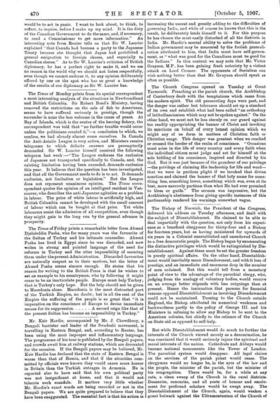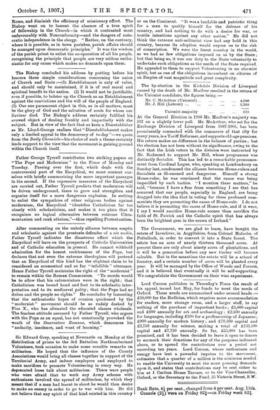But while Disestablishment would do much to further the interests
of the Church viewed merely as a denomination, he was convinced that it would seriously injure the spiritual and moral interests of the nation. Cathedrals and Abbeys would become national monuments like the Tower of London. The parochial system would disappear. All legal claims on the services of the parish priest would cease. The clergyman would no longer be, in the eyes of the law and the people, the minister of the parish, but the minister of his congregation. There would be, for a while at any rate, a clean sweep of the Church in the rural districts. Deaneries, canonries, and all posts of honour and emolu- meat for profound scholars would be swept away. The Disestablishment of the Church, again, would weaken a great bulwark against the Ultramontanism of the Church of Rome, and diminish the efficiency of missionary effort. The Bishop went on to lament the absence of a true spirit of fellowship in the Church—in which it contrasted most unfavourably with Nonconformity—and the dangers of auto- cratic independence in the clergy. " Rather, on the contrary, where it is possible, as in town parishes, parish affairs should be managed upon democratic principles." It was the wisdom of the parish priest to enlist the co-operation of all his people, recognising the principle that people are very seldom enthu- siastic) for any cause which makes no demands upon them.































































 Previous page
Previous page